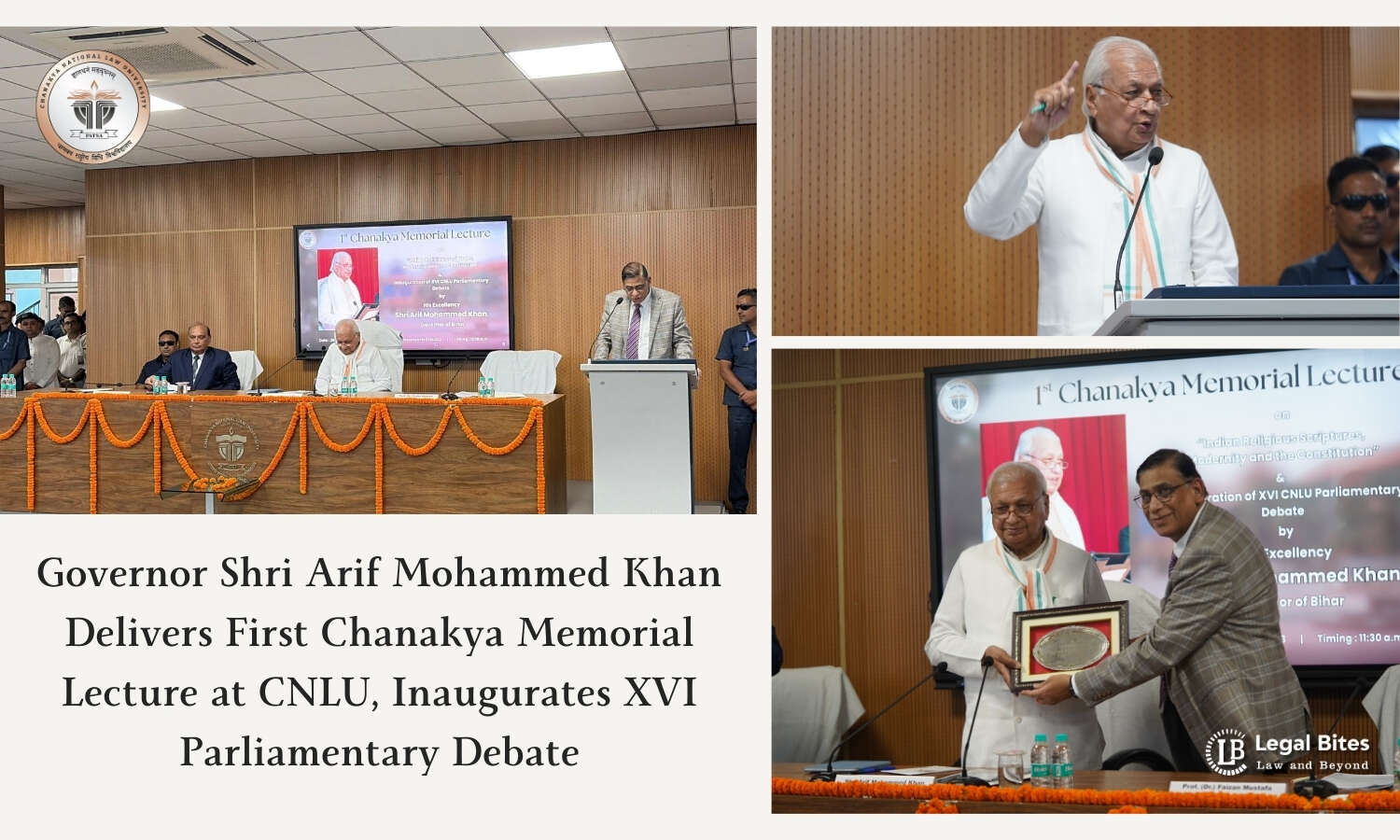
Patna, Bihar: The first-ever Chanakya Memorial Lecture was held at the Chanakya National Law University (CNLU), where the Hon’ble Governor of Bihar, Shri Arif Mohammed Khan, addressed students and faculty on the timeless relevance of Indian religious scriptures, diversity, and the Constitution of India.
Speaking on the occasion, the Governor emphasized that Indian religious traditions are far more liberal and progressive than even the provisions of the Constitution. He observed that in these traditions, “religion that violates the religion of others is not Dharma.” He reminded the audience that the Sanskrit language provides 14 different meanings of Dharma, cautioning against reducing this vast concept to the narrow confines of a single religion.
Religion, Diversity, and Human Dignity
Governor Khan elaborated that religious scriptures are not the exclusive copyright of any single community, but represent “the common heritage of mankind.” He pointed out that Indian traditions inherently respect diversity, as they do not prescribe one particular path to reach the Creator.
He explained that unlike conventional ideas of diversity, which separate entities, Indian scriptures consider the Creator and the created as one, where the Creator “multiplied himself to create different species.” Urging students to cultivate respect for diversity, he said: “Each human being and each creation of God possesses some portion of divinity.”
Swami Vivekananda, Tagore, and the Pursuit of Knowledge
Citing Swami Vivekananda, the Governor reminded students that the real purpose of life lies not in mere pursuit of comfort, but in the “pursuit of knowledge.” He also highlighted the moral duty of feeling the pain of others, quoting from the Rig Veda, Upanishads, and the Bhagavad Gita to stress that Indian scriptures envision the “welfare of the whole humanity, not prayers confined only to followers of Sanatan Dharma.”
Touching upon Rabindranath Tagore’s opposition to nationalism, Governor Khan explained that it stemmed from Tagore’s strong belief in universalism, rooted in the Vedic spirit of inclusivity. He further pointed out that scriptures describe Brahma as wisdom or knowledge itself.
Summarizing the essence of Dharma, he said: “Don’t do to others what hurts you.” He underlined that Sanatan Dharma ultimately aspires for union of the self with the soul, culminating in the synthesis of Atma with Parmatma.
XVI Edition of CNLU Parliamentary Debate Inaugurated
Following his lecture, Governor Sh. Arif Mohammed Khan formally inaugurated the XVI Edition of the CNLU Parliamentary Debate, where more than 20 teams from prestigious institutions across India will participate in debates over three days.
On this occasion, Prof. (Dr.) Faizan Mustafa, Vice Chancellor of CNLU, welcomed the dignitaries and participants. He praised the Governor for his unwavering commitment to principles and values, describing him as a leader who has always stood firm on ethical grounds. Prof. Mustafa also called upon the participants to uphold the rich traditions of parliamentary democracy.
The event concluded with formal remarks by Prof. (Dr.) S. P. Singh, Registrar, who issued the official press note.